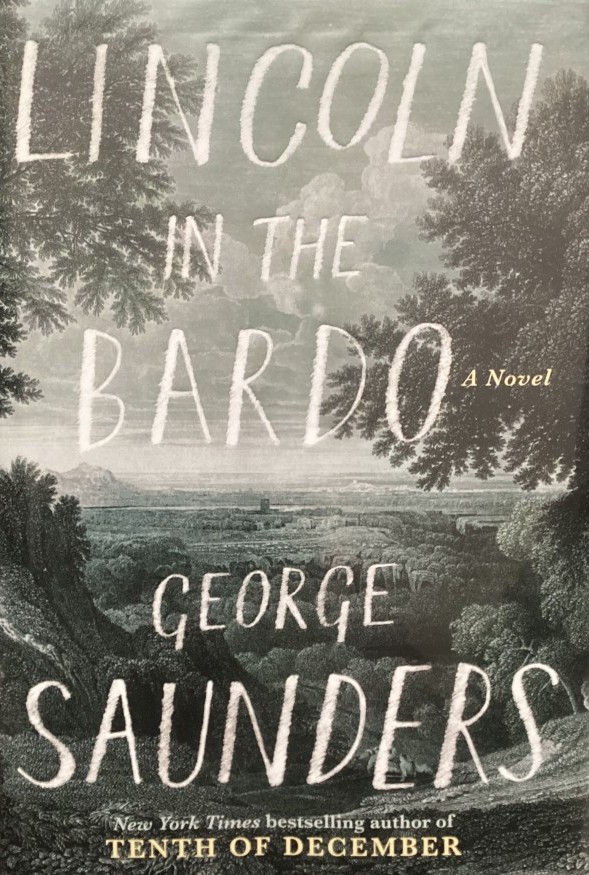Inspiring Older Readers
 posted on 02 Nov 2023
posted on 02 Nov 2023
Lincoln in the Bardo by George Saunders
In 2017 U.S. author, George Saunders published his first novel, Lincoln in the Bardo and I think it’s fair to say that some people regarded it as nothing short of brilliant while others were left puzzled. It was certainly well enough received to win that year’s Booker Prize and introduced the author to a wider British audience who were perhaps unaware of his pedigree as a short story writer, critic and journalist.
The title leads you to suspect that the subject of the novel is Abraham Lincoln – and he does play a central role in the book – but, in fact, the focus is on his son, Willie, who died aged 11 of typhoid fever. The conceit Saunders offers us is that the soul of the dead Willie has found it’s way to a sort of temporary afterlife known as a bardo - a concept borrowed from Tibetan Buddhism. In his review of the book for The Guardian in 2017, fellow novelist, Hari Kunzru usefully describes the concept:
“Since the days of the beats, the Bardo Thodol has been known in the west as The Tibetan Book of the Dead. A more accurate if less catchy title is “Great Liberation on Hearing in the Intermediate State”. Waking life, dreams, meditation and in particular the period between death and rebirth are all “bardos”, states of consciousness sandwiched between other states of consciousness. We are always in transition, from dreams to wakefulness, from life to death. When someone dies, Tibetan Buddhists believe that they enter the bardo of the time of death, in which they will either ascend towards nirvana, and be able to escape the cycle of action and suffering that characterises human life on earth, or gradually fall back, through increasingly wild and scary hallucinations, until they are born again into a new body. The Bardo Thodol is intended to be read to them during this journey, an instruction manual to assist them on their way.”
Children who die so young are expected to pass through this intermediate state without delay but Willie gets stuck there – held by his desire to experience the love and grief of his father who visits him in the crypt. The longer the boy’s soul tarries, the greater the chance that he will be trapped in this limbo state for eternity, prey to a sort of demonic presence. The story of the book, for what it’s worth, is if and how young Willie reconciles himself to leaving the living world he knew behind and moving onto the next.
The real interest of the book lies in the daring way Saunders constructs the narrative. What we get is a positive cacophony of voices that bolt the story into place. It’s a mix of voices – the dead who try and coax Willie through to the next life; fictional reportage; and real newspaper snippets. All of them get referenced and seem to split up the flow of the narrative but, in fact, once you have become accustomed to them enhance rather than interrupt the progress of the novel.
The dead souls that surround Willie and try and ease his path are, themselves, either in denial of their own deaths or not prepared to accept that they have to let go of their past lives. They witness the love Willie still inspires in his grieving father when he visits the crypt and find themselves reluctant to admit that they themselves can longer access such emotions. Willie and his father become surrogates of the affection that they want to experience vicariously whilst realising that Willie, as a child, needs to move on.
The dialogue generated by these voices is rumbustious and particular, clearly etching sketches of the dead souls in their purgatory.
Hari Kunzru’s review concludes by saying that “Lincoln in the Bardo is a performance of great formal daring” which is undoubtedly the case but he adds that “It perhaps won’t be to everyone’s taste…” and this is also very true. I doubt that this will ever be a novel you can be indifferent about – you’ll either be astonished by it or you’ll toss it aside very quickly.
I was astonished but I can entirely understand how it could have gone the other way.
Paperback copies are easily found for well under £10 if you are in the mood for an experiment.
Terry Potter
November 2023